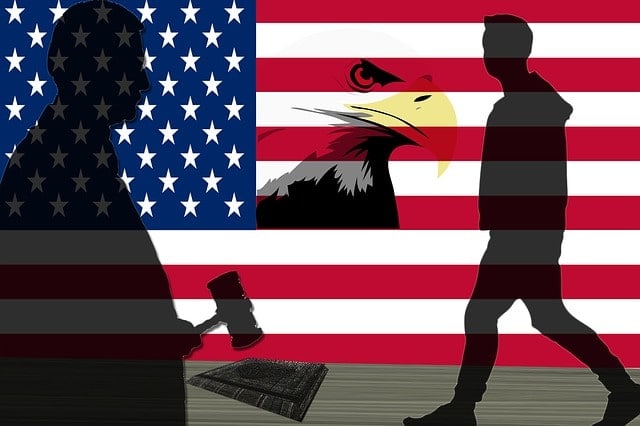
No one seems to take jury duty seriously anymore, including the U.S. Senate.
When I tell people that I’ve been summoned for jury duty, I get one (or both) of two reactions: “You poor thing,” and “Here’s how to get out of it.” On the other end of the spectrum, the Senate leadership has already announced that they are coordinating with the defense (for Donald Trump) instead of maintaining even a pretense of impartiality in the upcoming impeachment trial. So what the heck is going on?
Let’s get the elephant out of the room first.
I am appalled at the behavior of the Republican leadership throughout the impeachment process. While I agree the House rushed things and should have waited for more court-ordered testimony, the party-line-blatant disregard for trying to find out what really happened is truly abhorrent.
The process is there for a reason; the balance of power was written into the Constitution for a reason. I’m equally appalled at the silence from the vast majority of Americans who haven’t chastised their leadership for the same reasons. (But then, the problem goes much deeper, doesn’t it?) Now, let’s address the primary issue of this post.
Jury duty is both a privilege and a responsibility.
Like voting, it’s one of those rights that many Americans grow up with, take for granted, and tend to approach with a shrug. But talk to anyone who was born or lived where there was military or religious law, and you’ll find that it isn’t something to take for granted.
Yet some people go to great lengths to avoid the process, so much so that considerable time and manpower goes into tracking down no-shows, often resulting in fines. At the same time, large numbers of cases never go to trial, with plea deals negotiated or, more rarely, prosecutors deciding there’s not enough evidence to convince a jury.
So let’s look at the process through my experience and see if we can discern what is happening.
*****
The first time I was called was for the county in New Mexico where I had lived for six years. We had recently moved to another state, so I never had to appear. The second time was here in Texas, about three years ago, and while I was selected, I wasn’t seated for a jury. This time — the third — was for the same county.
The process in my county has improved since the last time. Unwieldy mail and phone trees have been replaced by postcards and website preregistration and questionnaires, which has sped up the process dramatically. (Yes, there are processes for those without internet access.)
Step One
At a guess, 300 or so people were there for the summons (what I’ve named the cattle call) on Friday morning. Those who hadn’t preregistered filled out their questionnaires.
After a review of all the exemptions & qualifications, cross-checks on missing people, and reminders of where not to park, the whole group was sworn in by a judge, who handled last minute exemptions and disqualifications. Then everyone was assigned to a group and told to report back at a certain day and time. The big group this time was split into four.

Under the old system, I was assigned to group C and wasn’t released until 4 pm that afternoon. Under the new system, I was assigned to group B and out before 11 am. They were on pace to be done by Noon. Yay! Welcome to the 21st century!
Step Two
The last time, our group reported back on Tuesday of the next week. We were seated in a courtroom, with the defendant and his counsel present, as well as the prosecutor and judge, court clerk, stenographer and bailiff. And the questions began.
The same question was asked of each prospective juror, one at a time. Some were on the previous questionnaire, some weren’t. One related to our jobs, and I was surprised at the number of law enforcement people. (Needless to say, the defense tried to weed them out.) Otherwise, we were a pretty mixed bag with the following exceptions: very few young people, very few old people, and very few minorities. (Let me clarify that in west Texas, it’s a toss-up whether Caucasians or Hispanics are the majority in any given community. Therefore, in this context, “minority” means both non-Hispanic and non-Caucasian.)
Whether they didn’t like my answers or they already had enough jurors by the final round, I didn’t get picked. While I had wanted to experience the whole process, I was also glad. That particular defendant had stared my direction for a long time and gave me the creeps. I finally determined he was staring at the person behind me to my left. But I was still relieved.
Step 3
This would actually be sitting through a trial. But since I haven’t, I’m not going to address it here.
*****
I report for the jury seating later this week, and have no idea what will happen. But going through this process again has raised a lot of questions, primarily:
Why does the pool of jurors seem so low?
Part of it has to do with exemptions. You can serve but don’t have to. Here’s the condensed list from my county’s website:
- You are 70 years of age or older.
- You have legal custody of a child under the age of 12 and serving on jury duty would necessitate leaving this child without adequate supervision.
- You are a high school or college student.
- You are an officer or employee of the Senate, the House of Representatives or any department, commission, board, office or agency of the legislative branch of government.
- You are a primary caretaker of an invalid who is unable to care for him/herself.
- Medical conditions: (Physical or mental impairment) If you have a medical condition which would make it impossible or very difficult to serve as a juror. [Affidavit required.]
- Active Duty Military.
Numbers 1, 2 and 3 explained the lack of twenty- or thirty-something women and the aged. And after waiting through most of the process, one elderly gentleman in front of me decided he’d had enough and took the age exemption.
Another reason numbers are low are the qualifications as shown below:
- At least 18 years of age.
- A citizen of the United States.
- A resident in [This] County.
- Are of sound mind and good moral character. [Documentation must be submitted to prove otherwise.]
- Are able to read and write.
- Have not served as a petit juror in [this] County courts system during the preceding 6 months. [This does not include federal or municipal courts.]
- Have not been convicted of a misdemeanor theft.
- Have not been convicted of a felony.
- Are not under indictment or any type of legal accusation for a felony or any type of theft.
Looks like a reasonable list, and it probably is. But there are a few things here that can have a big impact.
A county resident. Thanks to oil and gas, this area has a high rate of transience. (Not addressing homelessness, here, although that’s high, too.) Depending on their job(s), people move often — within the same county, to a neighboring county or state — and back again, often within the same year. So they don’t bother to update their driver’s license. Another problem is that our county has communities that are shared with the neighboring county, so the legal address may be County B, but their child goes to school in County A, making it easy to get on the wrong list.
Regarding #4, I just have to say, I wonder how often they get letters addressing the lack of “good moral character”?
Able to read and write. At our cattle call, they specified that this meant English, not Spanish. I don’t know if this would be different at a trial where the defendant only spoke Spanish, necessitating a translator, but at least one older woman responded to this.
Felonies and misdemeanor thefts. These brought up a lot of gray areas for me, as I considered our judicial system as a whole.
Here, passing a bad check is misdemeanor theft. In a bad economy, that can happen easily, knowingly or under duress. In oil & gas areas, it’s not uncommon for employers to mess up and not get auto-deposits in when promised, or having to cut a hard check which takes 3-5 days to get to you. If you’ve paid bills thinking that money was there, you can be screwed. I’ve met a lot of folks who have no idea how to advocate for themselves in such a situation. They just ignore it, thinking it will go away, until they get stopped one day and find out it didn’t.
And that leads to the other side of the equation: lifelong consequences of taking a plea deal when you aren’t guilty.
As more judicial records and cases become available to advocates, we have learned of many, many people who have taken a plea deal rather than go to court. They may be afraid of the pretrial jail time because they can’t post bail. Or afraid for the care of their family for the same reason. Or don’t want to drag their family through the process. There are probably as many reasons as people.
But how often are the long-term consequences explained to such folks?
They may be worried about keeping their job, only to get fired because they now have a conviction. Or maybe it was a personal use bust for marijuana in 1983, and the person was high at the time, but their admission was deemed acceptable. It was still a felony. I can see this being an issue in historically “high-crime” areas. How does one then find a jury of one’s peers?
Pressure is on prosecutors to get convictions however they can. Defense attorneys — public defenders, in particular, who are over-worked and underpaid — aren’t always looking out for their client’s best interest either. A trial makes more work for them and the outcome isn’t certain. So pressure is there to plea out. Not to mention stress. Lots and lots of stress.
At any rate, at least 10 people present were exempted under this category.

And then there is the money.
Here, the initial jury call day is $6.00 for showing up. If you go to trial, it’s $40 per day. As our county clerk explained, when the $6.00 was assigned by the state legislature, that was considered a day’s wages. A long, long time ago. Here, McDonald’s pays $15/hour and Starbucks starts at $13/hour. Unskilled labor can easily make $250/day, skilled labor double that and more. Most employers don’t pay you for the days you miss. Certainly the number one reason people don’t want to serve.
*****
Serving on a jury is no light matter.
One person I know was Foreman of a jury for a child pornography trial. They had to see all the evidence, and he was sickened by it. They convicted and imposed a fairly heavy sentence; the judge felt they were too harsh and lightened it considerably. This affected my friend so much, he actively campaigned against that judge when she came up for re-election.
Another person I know sat on a high-profile murder trial. They convicted, but she chose not talk about it. It was in all the papers, and we let her be.
So I know this isn’t a lark. If I am seated for a trial, I will execute my responsibility to the best of my ability. If I’m not seated, so be it.
Finally, I really don’t think jury trials are wrong or outdated or obsolete. They are fundamental to our judicial system and the concept of all people being equal. But the system isn’t perfect.
- We’ve let convenience overrule conscience.
- We’ve become complacent.
- We also need to re-examine the process in light of societal changes, where we’ve often become disconnected from our communities.
We, the people need to work toward change.
However, the concept remains sound: let people from the community try to set aside their personal prejudice and listen to the evidence for and against. Let them see the person being tried as a person, not a name or picture on a page. Let them deliberate the pros and cons, each from his and her own perspective, until they come to an agreement. That’s how it’s supposed to work.
Members of the U.S. Senate — Are you listening?
